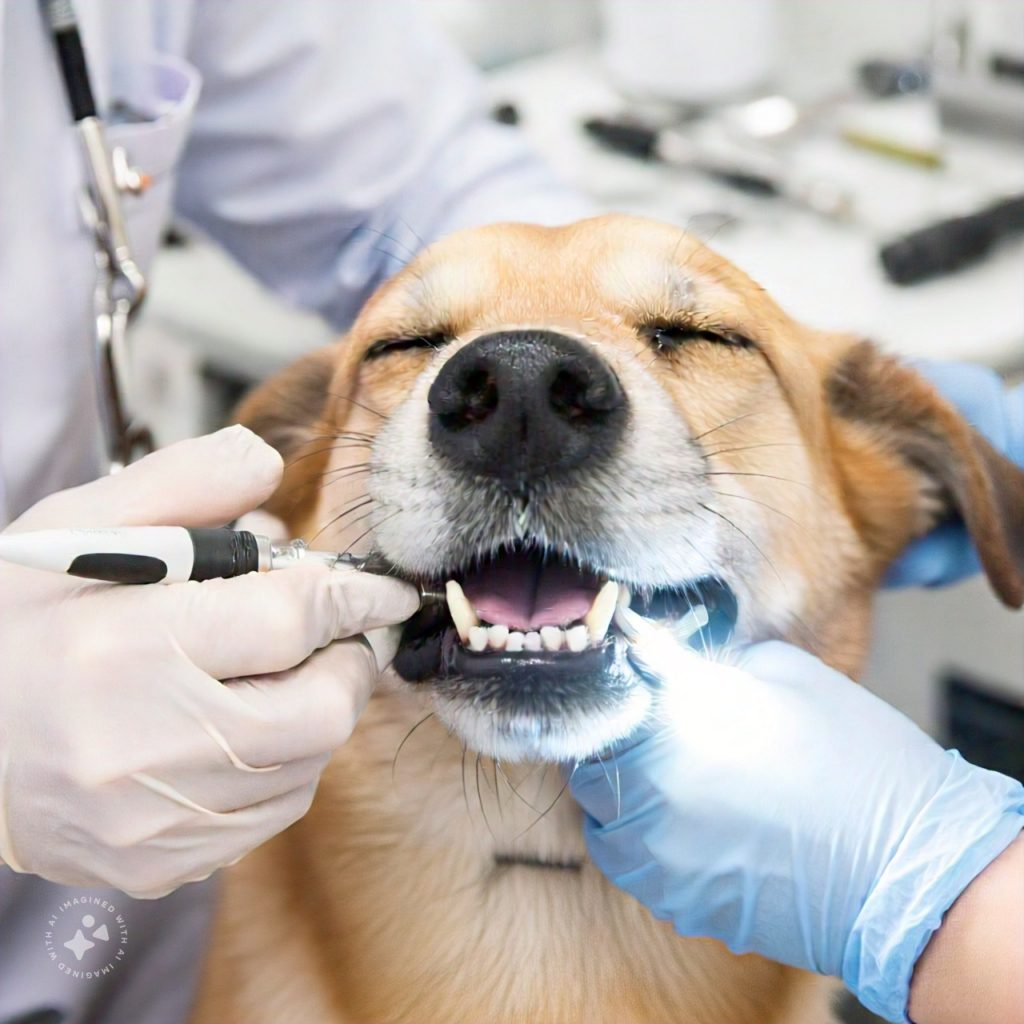Proper dental care is a vital yet often overlooked aspect of your dog’s overall health. Dental disease is one of the most common health issues in dogs, with over 80% of dogs experiencing some form of periodontal disease by the age of three. Without regular dental care, these issues can lead to pain, tooth loss, and even systemic health problems affecting the heart, liver, and kidneys. This comprehensive guide will help you understand why dental care matters, common dental issues in dogs, and how to maintain your dog’s oral health.
Why Is Dental Care Important for Dogs?
1. Prevents Oral Diseases
Regular dental care helps prevent plaque and tartar buildup, which can lead to gum inflammation (gingivitis) and advanced periodontal disease. These conditions cause pain, bad breath, and tooth loss if left untreated.
2. Avoids Systemic Health Issues
Oral bacteria can enter the bloodstream and spread to vital organs, causing serious health issues like endocarditis (heart infection) and organ damage.
3. Enhances Quality of Life
Pain from dental issues can affect your dog’s ability to eat, play, and enjoy life. Maintaining oral health ensures they live a happier, more comfortable life.
Common Dental Issues in Dogs
1. Periodontal Disease
This is the most prevalent dental condition in dogs. It begins with plaque buildup, progresses to gum inflammation, and can result in tooth loss and bone damage.
2. Tooth Fractures
Chewing on hard objects like bones or antlers can lead to fractured teeth, exposing the sensitive pulp and requiring treatment.
3. Bad Breath (Halitosis)
While “doggy breath” is common, excessively foul odor often indicates dental disease or infection.
4. Tooth Decay
Although less common than in humans, cavities can develop in dogs due to poor dental hygiene or sugary treats.
Signs Your Dog Needs Dental Attention
- Persistent bad breath.
- Red, swollen, or bleeding gums.
- Yellow or brown tartar buildup on teeth.
- Loose or missing teeth.
- Difficulty chewing or dropping food.
- Pawing at the mouth or excessive drooling.
If you notice any of these signs, consult your veterinarian for a dental exam.
How to Maintain Your Dog’s Dental Health
1. Brush Your Dog’s Teeth
Brushing is the most effective way to remove plaque and prevent tartar buildup.
Tips for Brushing:
- Use dog-specific toothpaste (never human toothpaste).
- Start slowly and make it a positive experience.
- Brush daily, or at least 3-4 times a week.
2. Provide Dental Chews and Treats
Dental chews are designed to reduce plaque and tartar while satisfying your dog’s chewing instincts. Choose products approved by the Veterinary Oral Health Council (VOHC) for effectiveness.
3. Offer Dental-Friendly Food
Certain diets are formulated to promote oral health. Dry kibble or prescription dental diets can help reduce plaque buildup.
4. Schedule Regular Veterinary Dental Checkups
Annual dental exams and cleanings by your veterinarian are essential. During these visits, your vet will assess your dog’s oral health, remove tartar, and address any issues.
Why Professional Cleanings Matter:
- Removes tartar that brushing alone cannot.
- Detects and treats issues early.
- Performed under anesthesia for a thorough and pain-free procedure.
5. Use Dental Water Additives
Dental water additives are an easy way to reduce bacteria and freshen breath. Add these to your dog’s water bowl daily as directed.
6. Encourage Safe Chewing
Chewing helps remove plaque naturally. Offer safe chew toys or rawhide alternatives to keep your dog’s teeth clean. Avoid hard items like cooked bones or antlers, which can cause fractures.
The Role of Your Veterinarian in Dental Care
Veterinarians play a crucial role in maintaining your dog’s oral health. In addition to regular checkups, they can:
- Perform professional cleanings to remove tartar and polish teeth.
- Diagnose and treat oral diseases, infections, or fractures.
- Provide tailored recommendations for at-home care.
Debunking Common Myths About Dog Dental Care
1. Myth: Dry Food Alone Keeps Teeth Clean
While dry food helps reduce plaque compared to wet food, it is not a substitute for brushing or professional cleaning.
2. Myth: Dogs Don’t Need Regular Dental Care
Dental disease can affect dogs of all breeds and ages. Regular care is essential to prevent serious health issues.
3. Myth: Bad Breath Is Normal in Dogs
Foul-smelling breath is often a sign of underlying dental problems and should not be ignored.
Preventing Dental Problems from Puppyhood
Start dental care early to make it a routine for your dog. Introduce tooth brushing gradually and offer appropriate chew toys. Puppies with a solid foundation in dental care are less likely to develop severe problems later in life.
Conclusion
Regular dental care is vital to your dog’s overall well-being. By prioritizing oral hygiene, you can prevent painful conditions, extend your dog’s lifespan, and improve their quality of life.
Take proactive steps today by implementing a consistent dental care routine and scheduling regular veterinary checkups. Your furry friend’s healthy smile will thank you!

